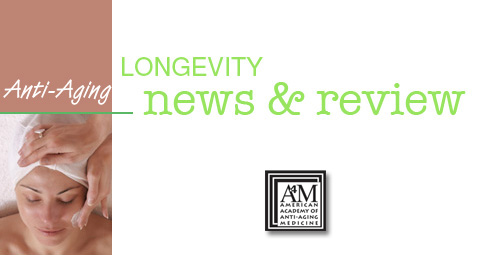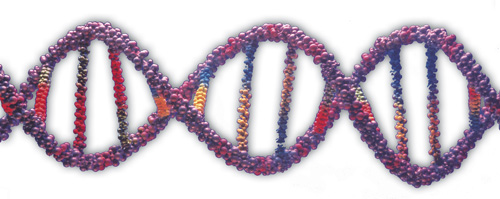|
[home] [subscription form] [cover story] [introduction] [people and places] [medical spa destinations]
|
||

VOLUME 2008 chapter 3
Healthy Lifestyle Choices Can Extend Lifespan by 14 Years
Kay-Tee Khaw, from Cambridge University (United Kingdom), and colleagues, followed 20,000 men and women, ages 45 to 79, for 13 years. They questioned the study subjects about their lifestyles and conducted blood testing to measure Vitamin C levels (an indicator of daily fruit and vegetable intake). Those study subjects with the lowest number of healthy behaviors were four-times more likely to die, most notably from cardiovascular disease. The team found that study participants with the lowest healthy lifestyle scores had the same risk of dying as someone with the highest healthy lifestyle scores who was 14 years older. The lifestyle change with the biggest benefit was smoking cessation, associated with an 80% improvement in lifespan. The second most significant change was increased consumption of fresh fruits and vegetables. Thirdly, moderate drinking; and fourthly, staying physically active, rounded out the four most beneficial lifestyle choices to extend lifespan.
[Khaw KT, Wareham N, Bingham S, Welch A, Luben R, Day N. “Combined Impact of Health Behaviours and Mortality in Men and Women: The EPIC-Norfolk Prospective Population Study.” PLoS Med. 2008 Jan 8;5(1):e12. [Epub ahead of print].]
Dr Klatz remarks: This study validates the anti-aging lifestyle, to both extend lifespan as well as prolong healthspan -- the length of time that we are able to live productively and independently. It also demonstrates the applicability of the anti-aging lifestyle across a broad base of the population. The physician members of the A4M submit that healthy lifestyle choices can bridge our longevity sufficiently such that next-generation biomedical technologies can be effectively implemented and further lengthen the healthy human lifespan by 30+ years.”
Drink and Exercise, In Moderation, for Longer Life
In a study involving nearly 12,000 men and women age 20+ for 23 years has identified longevity benefits of light drinking and regular physical exercise. Morten Grongbaek, of the University of Southern Denmark, and colleagues found that the light-to-moderate alcohol consumption, along with engaging in moderate aerobic activity, reduces the risk of heart disease. Study subjects who neither drank nor exercised were found to have a 30 to 49% higher risk of heart disease than those who engaged in one or both of the activities.
[Pedersen JO, Heitmann BL, Schnohr P, Grønbæk M. “The combined influence of leisure-time physical activity and weekly alcohol intake on fatal ischaemic heart disease and all-cause mortality.” Eur Heart J. 2008 Jan 9; [Epub ahead of print].]
Dr. Goldman observes: “This study is one of the largest that examines the combined effect of drinking and exercise on lifespan. By finding that people who are physically active and consume alcohol in moderation were among the least likely to die of heart disease, the researchers underscore the importance of regular, yet modest and simple beneficial daily behaviors.”
Acrylamide and Increased Risk of Breast Cancer
Acrylamide, a probable human carcinogen, is formed most notably when foods high in starches (potatoes, for example) are cooked at high temperatures (such as fried, roasted, baked, or toasted). Tobacco smoking also generates substantial amounts of acrylamide. Henrik Frandsen, from the Technical University of Denmark, and colleagues have completed the first epidemiological study to report a direct association between acrylamide and the increased risk of breast cancer. The team showed that the risk of breast cancer doubles with a tenfold increase in the levels of acrylamide in hemoglobin. Further, the study showed a stronger association for estrogen-receptor positive breast cancer, with increased blood levels of acrylamide.
[Thonning Olesen P, Olsen A, Frandsen H, Frederiksen K, Overvad K, Tjønneland A. “Acrylamide exposure and incidence of breast cancer among postmenopausal women in the Danish Diet, Cancer and Health Study.” Int J Cancer. 2008 Jan 8; [Epub ahead of print].]
Comments Dr. Klatz: “Acrylamide may be among the greatest emerging contributors to disease in modern society Acrylamide first made headlines in 2002, when scientists at the Swedish Food Administration first reported that high levels of it caused cancer in laboratory animals. Prior to this study, a team from the University of Maastricht (Netherlands) examined data from more than 62,500 women and found that increased dietary intake of acrylamide raised the risk of endometrial cancer by 29% and ovarian cancer by 78%. Choose to steer clear of starchy foods cooked at high temperatures, and do not smoke (or stop smoking), and cut your exposure to acrylamide and its potential cancer-causing effects.”
Anti-aging medicine is the fastest-growing medical specialty throughout the world and is founded on the application of advanced scientific and medical technologies for the early detection, prevention, treatment, and reversal of age-related dysfunction, disorders, and diseases. It is a healthcare model promoting innovative science and research to prolong the healthy lifespan in humans. As such, anti-aging medicine is based on solid scientific principles of responsible medical care that are consistent with those applied in other preventive health specialties. The goal of anti-aging medicine is not to merely prolong the total years of an individual's life, but to ensure that those years are enjoyed in a productive and vital fashion.
Visit the A4M's World Health Network website, at www.worldhealth.net, to learn more about the A4M and its educational endeavors and to sign-up for the FREE E-Biotech Newsletter.

